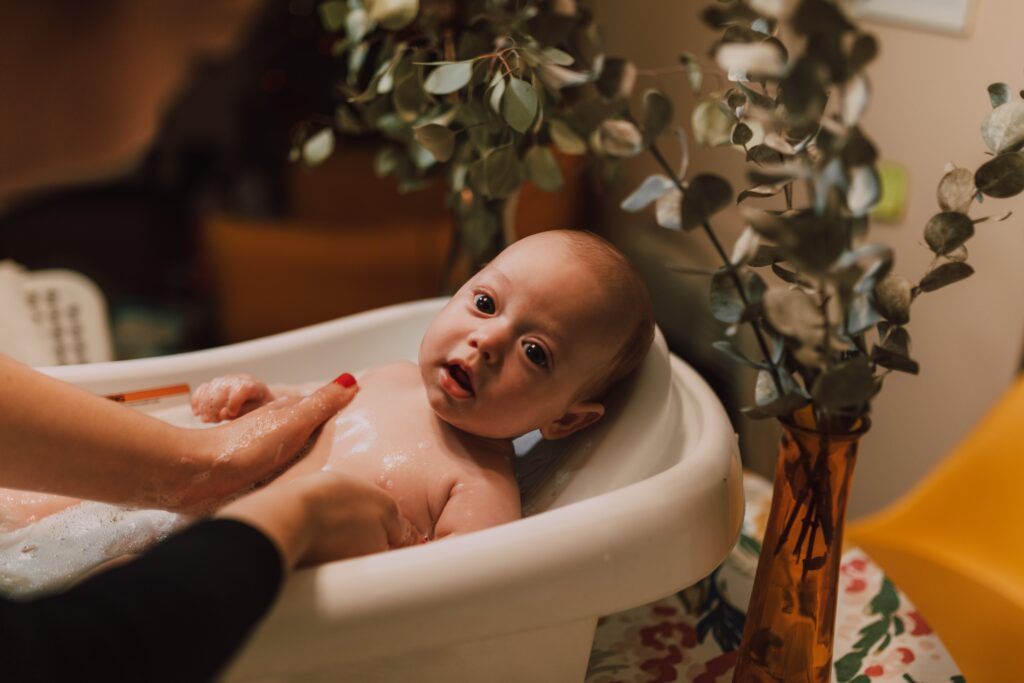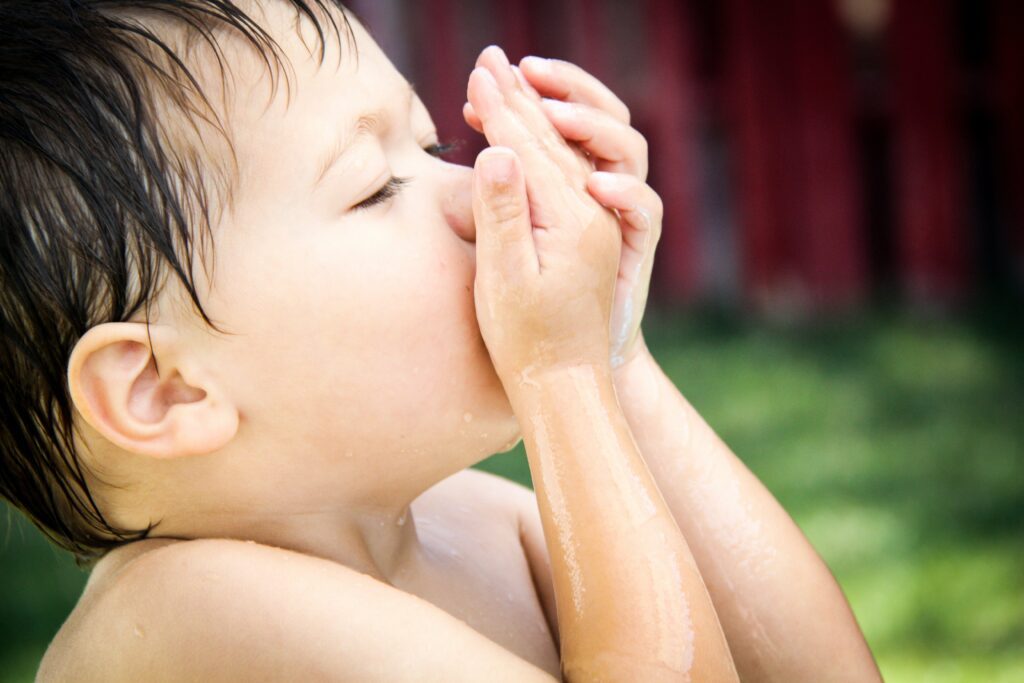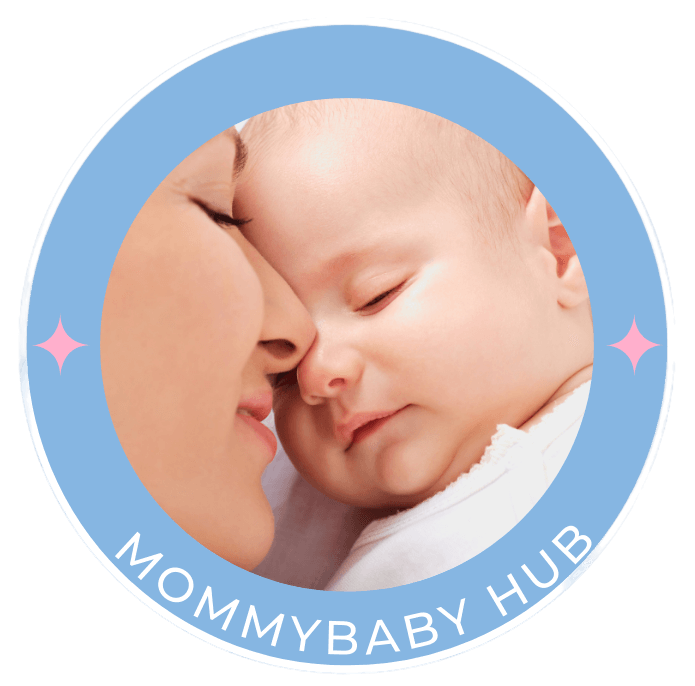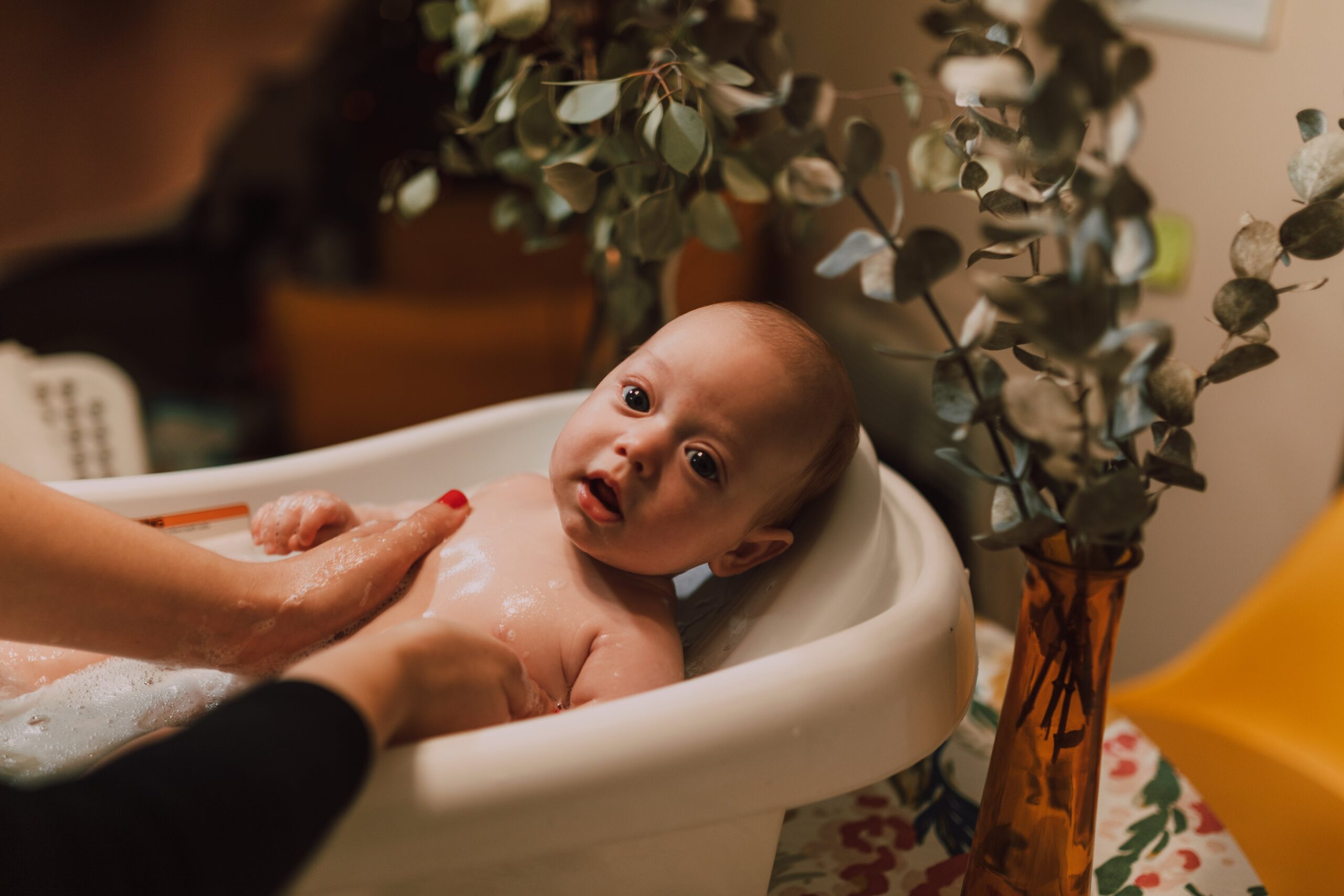Baby’s skin is the largest organ in their body. Understanding baby skin care is essential to maintaining its health.

As the baby’s immune system is delicate, so is the baby’s skin. There are normal baby skin rashes but other things like chemicals, detergents, dyes in clothing, and baby products can cause skin irritation, dryness, and rashes.
Everyday life can have an influence on your baby’s sensitive skin in a variety of ways, including bathing and exposure to sunlight to climatic conditions and cleaning infant clothes. Baby skin care is crucial to protecting your infant from these skin problems. Here is a guide on how to care for your baby’s skin.
Natural newborn skincare
A newborn baby is born with wrinkled skin and vernix, a protective layer that naturally peels off throughout the first week. Vernix is a natural protective layer that forms during the last trimester of pregnancy and there is no need to rub or treat it with lotion or cream. With newborn skin care, you need to do less than you can think of.
Here are ways to protect your baby from rashes and skin allergies.
- Avoid bathing your baby frequently: Bathing your baby more than 3 times a week during the first year of life can remove the baby’s natural oils that protect the skin. This leaves the baby’s skin at risk of being dry and can worsen eczema. Newborns don’t usually get dirt, apart from drool and diaper changes. For the first month, you can sponge bath your baby 2-3 times a week. This will keep them clean. Cleaning your baby’s mouth and diaper area with little water will be enough in between the sponge baths.
- Always wash your baby’s clothes before they are worn: Wash baby’s clothing, and bedding separately from other family members’ laundry. Use only baby detergent which is dye and scent-free.
- Avoid scented baby products completely: Scents from some baby care products can irritate the baby’s skin and cause skin rashes.

Baby skin care for common skin conditions
In the first several months of life, infant skin is still forming. The skin is more delicate, sensitive, and thin. Also, it is less resistant to allergens, irritants, and germs that could irritate the skin and cause infection.
Maintaining the integrity of the baby’s skin barrier through good skin care habits will help avoid future skin issues. This entails proper grooming, moisturizing, and sun defense. Let’s look at some of the conditions.
Diaper rash
Diaper rash is typically brought on by the irritating moisture of a soiled diaper. The baby’s skin may also become irritated if it is not thoroughly dried after a bath. A diaper rash can occasionally be brought on by bacteria or a yeast infection.
Babies who take antibiotics are particularly prone to yeast infections and diaper rash because the medications promote fungal growth. Most diaper rash don’t require medical treatment or special baby skin care. To prevent diaper rash and prevent further skin problems:
- Check frequently and change immediately if the diaper is soiled or wet.
- Wash the diaper area with plain water or unscented cleanser.
- Use a soft clean cloth. Do not use baby wipes, the perfume and alcohol in some baby wipes may irritate and worsen the diaper rash.
- To dry, pat rather than rub. Before putting on a new diaper, let the diaper area completely air dry.
- Apply a layer of petroleum jelly such as Vaseline or other baby skin care oil of choice.
Eczema
Eczema shows as an itchy, red rash that mostly develops on the face, scalp, elbows, and below the knees. Here are some suggestions for preventing dry, itchy baby skin and eczema:
- Keep the bathtime short and use soap with caution.
- Do not use scented baby skin care products. Use only lotion or ointment if the skin is dry.
- Make sure that your baby wears soft cotton clothes.
Talk to your pediatrician before using any over-the-counter lotions or creams to treat eczema.
Baby skin care essentials
Baby skin care is a critical matter. Using the mildest of cleansers and the smallest pinch of lotion in the early months after birth is recommended since the baby’s immunity is still developing. But when dry skin, diaper rash, or eczema develops, treat them without hesitation. Discuss with the pediatrician before using new skin treatment products.
You should use baby skin care products without dyes and fragrances on your infant. If you have a newborn, consider these suggestions before going for shopping:
- Look for phthalate and parabens-free products.
- Read the skin care product labels carefully. Products that contain dyes, scents, and chemicals can irritate the baby’s skin.
- Be careful when choosing the products labeled “hypoallergenic.” This means that the product is less likely to cause an allergic reaction, but doesn’t imply that it’s more gentle on your baby’s skin than other products.
Baby skin care products
The following are some of the products that you are likely to use on your baby’s skin.
Baby laundry detergent – Choose dye-free and fragrance-free detergent. Regular laundry detergents can irritate the baby’s skin.
Petroleum jelly – it’s commonly used to treat a diaper rash. It provides a prevention barrier for the baby’s skin against wet diapers.
Baby soap/shampoo/cleanser – Mild washes and cleaners may be safe. Nevertheless, use soaps carefully as they can cause the baby’s skin to dry out.
Baby lotion – helps to hydrate newborn skin. But, use caution.
Diaper rash cream – prevents moisture from reaching the baby’s skin, protecting it from irritation caused by wetness.
Baby oil – This classic is better used for massage than as a moisturizer. A newborn’s skin does not absorb it properly.
Given that your baby’s skin is the largest organ in the body, it is crucial to maintain its health. Do not forget to protect your baby’s skin from the sun, keep it dry, and clean. Additionally, it’s crucial to avoid overusing moisturizers and other skin care products, which may cause skin issues.
In the first year of life, babies are vulnerable to several various skin diseases. You should speak with your baby’s doctor for more information if a rash develops along with a temperature of 37 degrees Celsius or higher, an illness, or if it does not go away within a few days.

